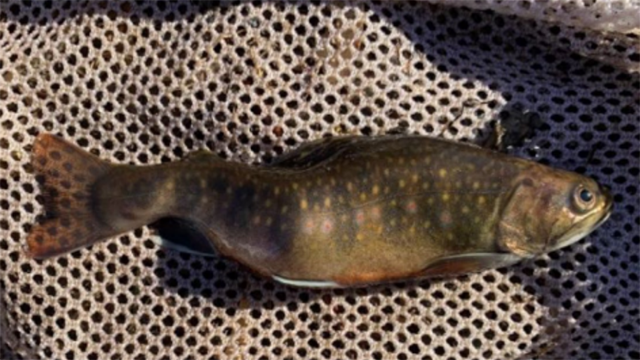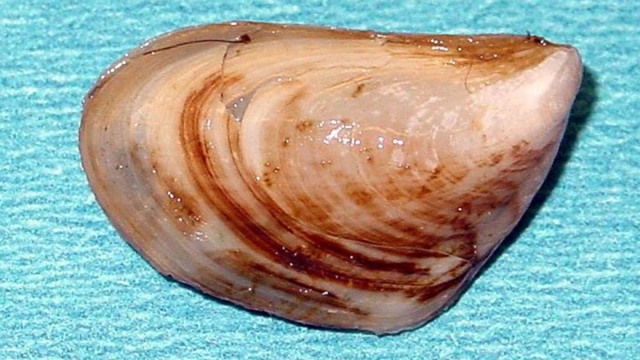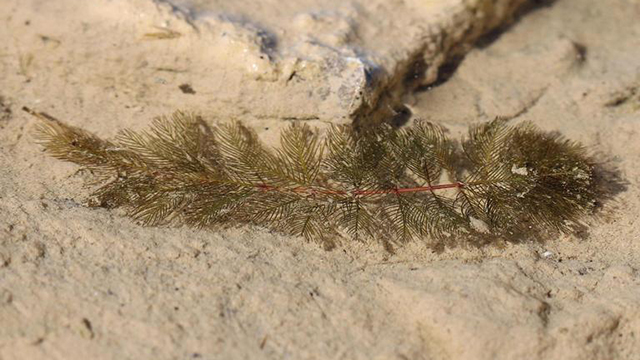
Water activity rules and regulations
Yoho National Park
Waterbody closure
All waterbodies in Yoho and Kootenay national parks are closed to watercraft and angling until March 31, 2025 to reduce the spread of aquatic invasive species (AIS), including whirling disease. The closure applies to all lakes, streams, and rivers in Yoho and Kootenay national parks.
Prohibited activities:
- Paddling: The closure applies to all watercraft such as canoes, kayaks, paddleboards, kiteboards, rowboats, and inflatable boats and toys (e.g., donuts, unicorns, etc.).
- Motorized boats: Motorized boats are not permitted in Kootenay and Yoho national parks.
- Angling: Angling equipment such as fishing rods, waders, boots, gloves, nets, and other gear that comes into contact with the water.
- Violators face fines up to $25,000 under the Canada National Parks Act. View the Restricted Activity Order to learn more.
Permitted activities:
- Swimming: Use of swimming aids and safety equipment, such as personal flotation devices, water shoes, wetsuits, gloves, snorkel equipment, throw bags, water wings, and other equipment to assist with swimming.
- Beach and shoreline access: Includes beach toys and pets on leash.
- Hiking and camping: Designated trail crossings and fords, collecting water for treatment.
- Rentals: Rental boats are available at Emerald Lake, where watercraft are only used in Emerald Lake.
- Visitors must clean, drain, and dry all equipment that comes into contact with water.
Parks Canada is committed to preventing aquatic invasive species from entering park and regional waterways to maintain the ecological integrity of aquatic ecosystems in Kootenay and Yoho national parks and downstream areas. Thank you for protecting these special places!
Aquatic invasive species
Aquatic invasive species (AIS) are non-native plants, animals, and diseases. Many AIS are harmful to freshwater ecosystems. AIS reproduce quickly, rarely have natural predators, and often out-compete native freshwater species. Preventing aquatic invasive species from entering waterways is a Parks Canada priority. Once AIS are established, removal is next to impossible.
Whirling disease
The parasite that causes whirling disease is an aquatic invasive species (AIS). Symptoms of whirling disease include skeletal deformities, bulging eyes, and a dark or black tail. The disease can be spread to other waterbodies through spores in mud and water. This disease is not harmful to humans or other mammals but can have significant effects on some trout, whitefish, and salmon populations. In some cases, mortality rates in young fish have reached 90 per cent.

Invasive mussels
Quagga and Zebra mussels are small, fan-shaped organisms that range from dark brown to white in colour. Just a few mussels can produce millions of eggs. They are very efficient at filtering nutrients from the water, which changes the food web for native species. Dense colonies of mussels can clog water pipes and make the shoreline unusable because of their sharp shells and odour.

Eurasian water milfoil
Eurasian water milfoil is a perennial, submersed aquatic plant native to Eurasia and North Africa. Although not currently present in Alberta, new colonies can form from a single stem, seed, or leaf. Eurasian milfoil forms thick layers that shade native plants and decrease oxygen levels as they decay.

Learn more about the impact of AIS and important guidelines to follow before entering waterbodies to prevent the spread of AIS. This video is a collaboration between Tourism Golden and Parks Canada.
Transcript
[Scene] Canoeing on Emerald Lake.
[Scene] Female Parks Canada employee speaking to the camera, wearing a Parks Canada uniform with visible beaver logo.
[Speaker remains consistent throughout video.]
[Text on screen shares speaker’s name and position] Jeanette Goulet, Nature Legacy Ecosystem Scientist
[Speaker] “The legendary lakes and rivers within Canada’s mountain ranges are breathtakingly beautiful.”
[Scene] People on a boardwalk next to water. View from inside Marble Canyon pans out to include a family standing on a nearby boardwalk. Aerial view of a bridge crossing a river in Kootenay National Park.
[Speaker] “Turquoise pools and exhilarating rapids supply clean water to much of the continent and invite anglers and adventure-seekers to explore the region by foot and boat.”
[Scene] Family crossing bridge panning out to valley. Hand holding a Zebra Mussel.
[Text] AQUATIC INVASIVE SPECIES (AIS)
[Speaker] “However, these lakes and rivers are also under threat from non-native species known as Aquatic Invasive Species, or AIS for short.”
[Scene] Wide shot of Emerald Lake with people walking along lakeshore.
[Text with accompanying image of each species] EXAMPLES OF AIS: Eurasian Milfoil, Zebra Mussels, Northern Crayfish, The parasite that causes Whirling Disease (Myxobolus Cerebralis)
[Speaker] “Examples of AIS include Eurasian milfoil; zebra mussels; northern crayfish; and the parasite that causes whirling disease.”
[Scene] Two Parks Canada staff with electrofishing equipment standing by lakeshore. Closeup of electrofishing equipment in the water.
[Text] AIS EFFECTS ON ECOSYSTEMS: Disrupt and irreversibly harm aquatic habitat; Threaten vulnerable species at risk; Limit access to lakes and rivers
[Speaker] “AIS pose a significant threat to vital aquatic ecosystems. They disrupt and irreversibly harm aquatic habitat, threaten vulnerable species at risk, and limit access to lakes and rivers.”
[Scene] Two Parks Canada staff walking along waterbody. One staff member reaching into the water and pulling out a rock.
[Speaker] “Some AIS, like zebra mussels or Eurasian milfoil, damage infrastructure, boat motors, and fishing equipment. AIS can also spread downstream beyond park boundaries through interconnected river systems.”
[Scene] Aerial photo of waterbody and walking trails.
[Speaker] “Unfortunately, AIS have been detected in several Parks Canada places.”
[Scene] Hand holding Zebra Mussel with field research notes and GPS device.
[Speaker] “In 2016, whirling disease was found in Johnson Lake, in Banff National Park.”
[Scene] Aerial shot of Emerald Lake with Mount Wapta. Aerial shot of the Kicking Horse River.
[Speaker] “In 2023, whirling disease was detected in Emerald Lake in Yoho National Park – the first detection of its kind in British Columbia – and the Kicking Horse River. Whirling disease can have a mortality rate of up to 90% in young fish. It poses a serious threat to salmon and trout species.”
[Scene] Hand placing Zebra Mussel in a small jar. Employee holding rock and turning it over.
[Speaker] “Within the mountain national parks, AIS has affected fish populations, closed access to lakes and rivers, and cost millions of dollars to combat.”
[Scene] Jeanette speaking to camera.
[Speaker] “Protecting our lakes and rivers is a collective responsibility, and all of us have an important role to play.”
[Scene] River and mountain. Two people rinsing and wiping a canoe on a lakeshore.
[Speaker] “The best way to stop the spread of AIS throughout mountain lakes and rivers is prevention.”
[Scene] Close-up of paddleboard fins being rinsed off.
[Speaker] “Here are a few important guidelines to follow during your own recreation, as well as to pass along to visitors.”
[Scene] Wide shot of rivers and trees.
[Text] NEVER RELEASE IN NATURAL WATERBODY: Aquarium Pets, Water Garden Plants, Live Bait, Creatures
[Speaker] “Never release aquarium pets, water garden plants, live bait, or creatures into any natural water body, streams, lakes, or ponds.”
[Scene] Waterfall. Aerial of Emerald Lake.
[Text] DON’T LET IT LOOSE
[Speaker] “Releasing any organism into a body of water is illegal and could potentially launch an AIS invasion. Don’t let it loose.”
[Scene] Close-up of a paddleboard being washed off.
[Text] CLEAN, DRAIN, DRY
[Speaker] “The most effective method of prevention is to clean, drain, dry.
Clean: all mud, sand, plant, and animal materials from watercraft or water related gear.”
[Scene] Two people washing a paddleboard with water and a cloth.
[Text] CLEAN: Boats; Paddle Boards; Fishing Gear; Water Toys (Inflatables)
[Speaker] “This includes boats, paddleboards, fishing gear and water toys, including inflatables.”
[Scene] Paddleboard paddle being separated and water drained out.
[Text] DRAIN: Coolers; Buckets; Compartments; Items that may hold water
[Speaker] “Drain: coolers, buckets, compartments, and other items that may hold water.”
[Scene] Paddleboard paddle wiped down with a cloth. Fishing rod wiped down with a cloth.
[Text] DRY: Watercraft; Water-related gear
[Speaker] “Dry: watercraft and any water related gear completely before entering any river, lake or stream.”
[Scene] Inside of a tackle box wiped down with a cloth. Two people wiping down a paddleboard with cloths.
[Speaker] “Equipment needs to dry for 48 hours after use in Alberta, British Columbia, or the territories, or dry for a minimum of 30 days after use in the United States or other provinces.”
[Scene] Waterfall over rocks.
[Speaker] “AIS rules and regulations vary across the country. Not all lakes and rivers in national parks have the same restrictions.
[Scene] Lake with two people on two paddleboards and one canoe.
[Text] PLAN AHEAD
[Speaker] “It’s important to plan ahead to ensure your watercraft is allowed to launch before you arrive.”
[Scene] Family standing by a waterfall.
[Text] CHECK RESTRICTIONS AND CLOSURES
[Speaker] “Before entering lakes and rivers, always check for restrictions or closures.”
[Scene] Two Parks Canada employees doing research on a lake in inflatables kayaks.
[Speaker] “Unfortunately, the spread of AIS can have dire and irreversible consequences for lakes and rivers.”
[Scene] Jeanette speaking to camera.
[Speaker] “It is important to understand that our actions have consequences and that we can prevent the spread of AIS with a few simple steps.”
[Scene] Aerial image of Wapta falls, overlaid by a laptop with resource link.
[Link text] https://parks.canada.ca/pn-np/mtn/eaux-waters
[Speaker] “For more information, visit the Parks Canada website.”
[Text] Drone/UAV footage used in this video were taken from outside the park boundary and/or in compliance with Parks Canada UAV rules and regulations. Please note that recreational use of drones is prohibited at all Parks Canada places.
Protect lakes and rivers in the mountain national parks
Aquatic invasive species rules and regulations vary across the national parks. Plan ahead and check restrictions or closures before entering lakes and rivers in any national park. Learn more about AIS rules and regulations across the mountain national parks.
Report aquatic invasive species sightings:
Email ReportAIS-SignalerEAE@pc.gc.ca with a description of the organism, photos, and a precise location (GPS coordinates preferred).
Sightings outside of the national parks can be reported to:
1-855-336-2628 (BOAT) in Alberta and 1-888-933-3722 in British Columbia.
- Date modified :